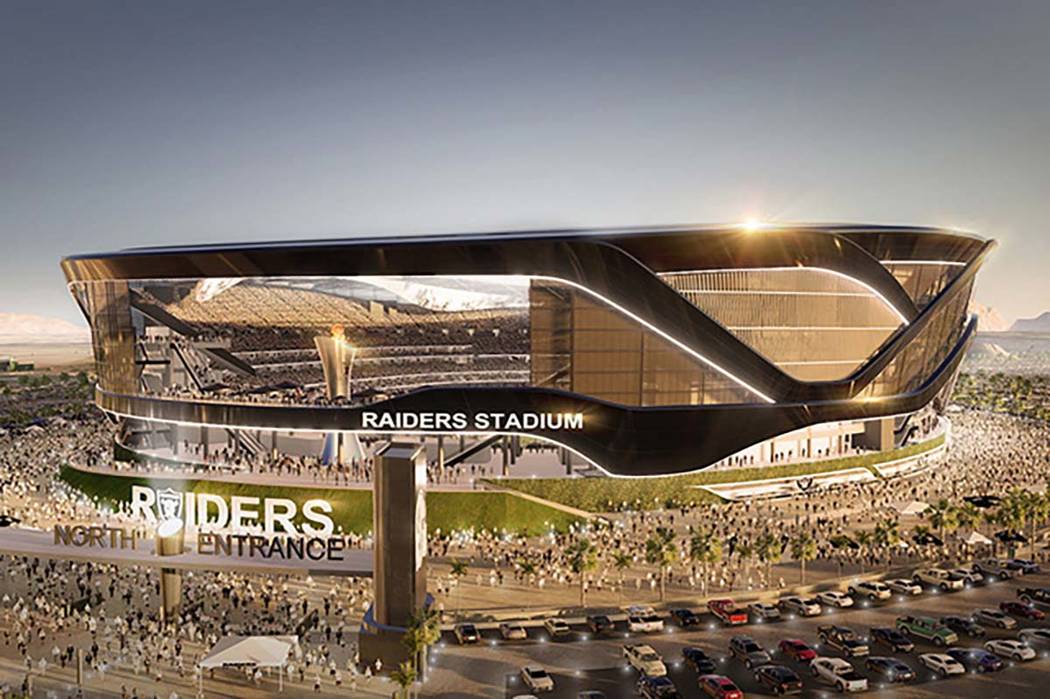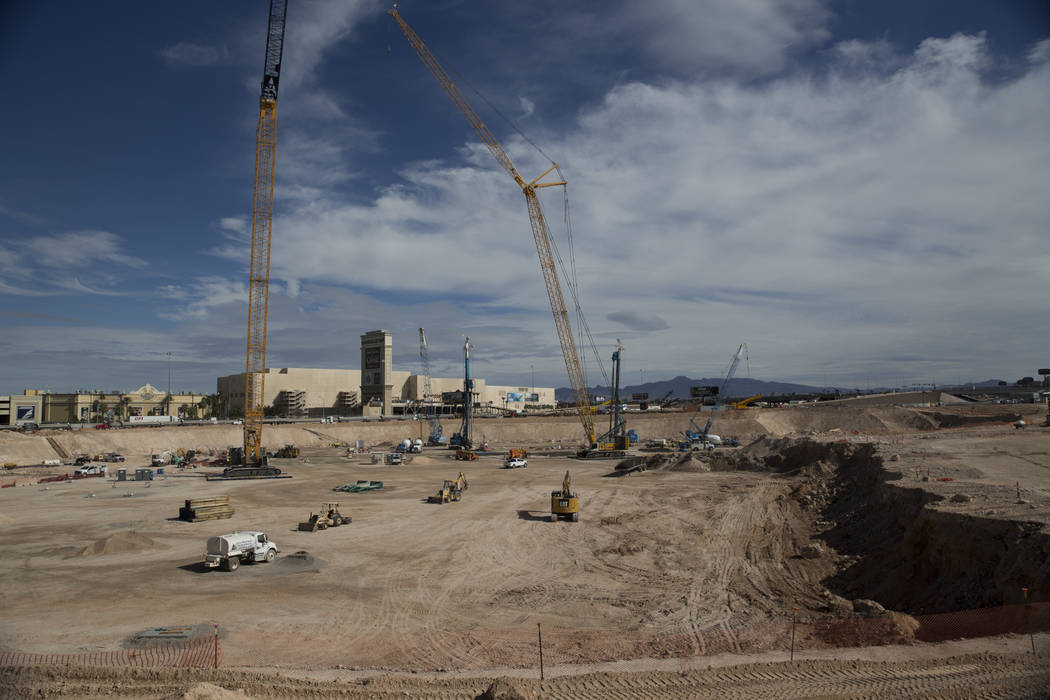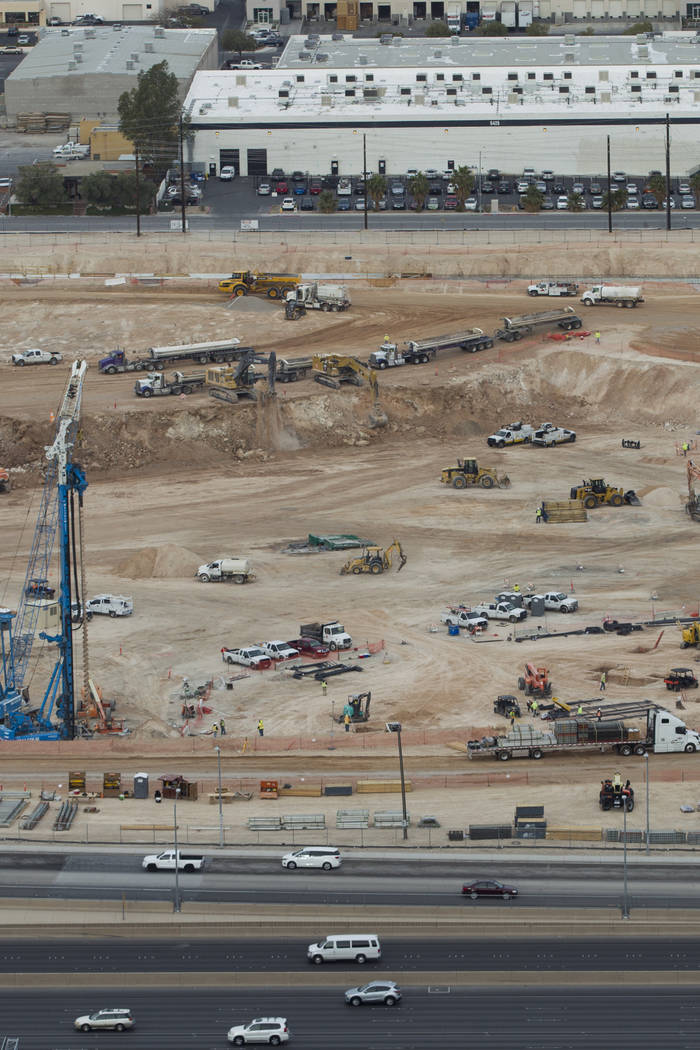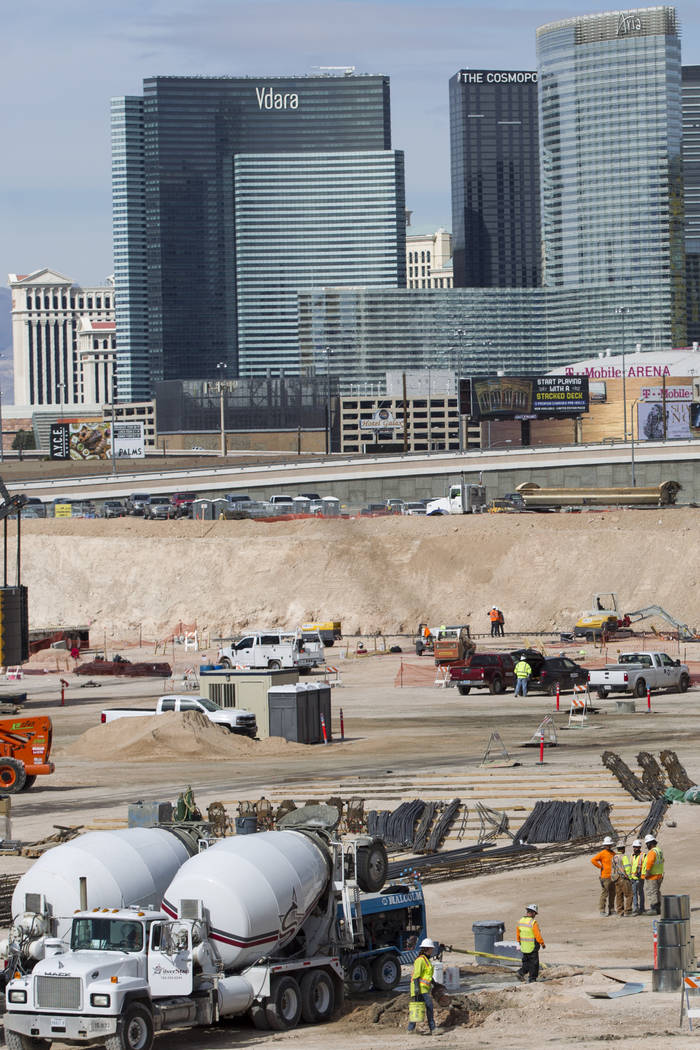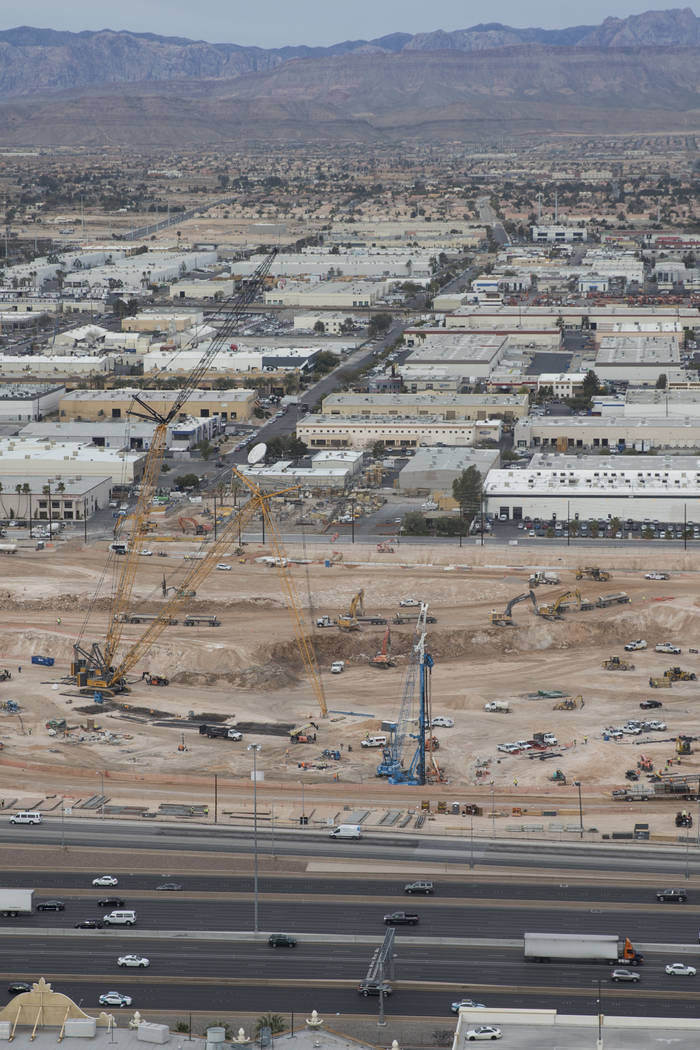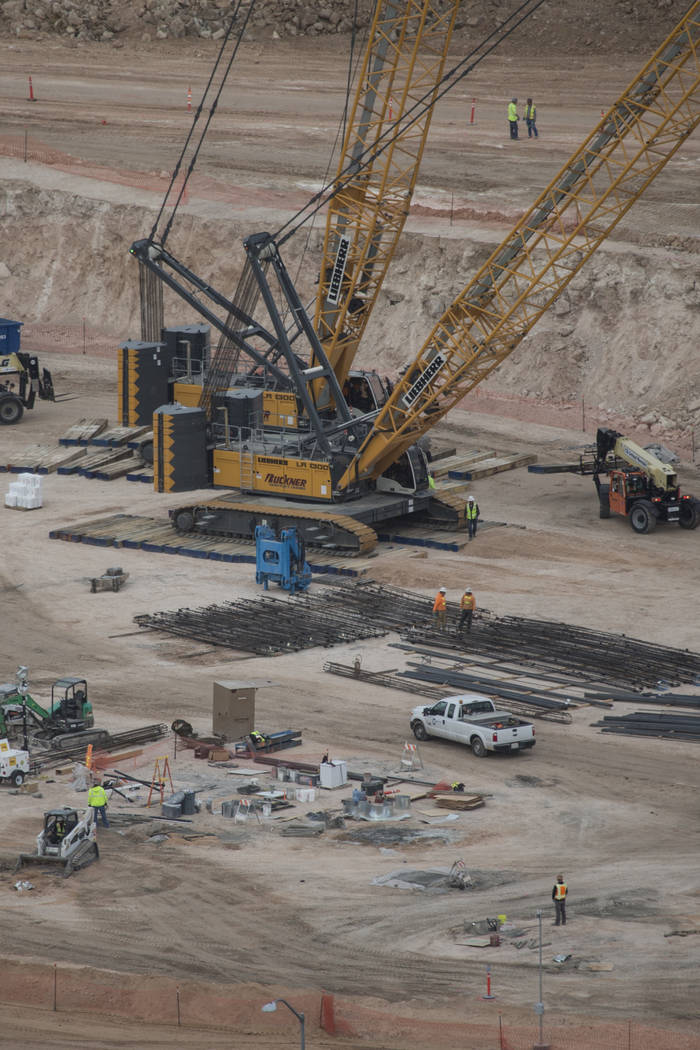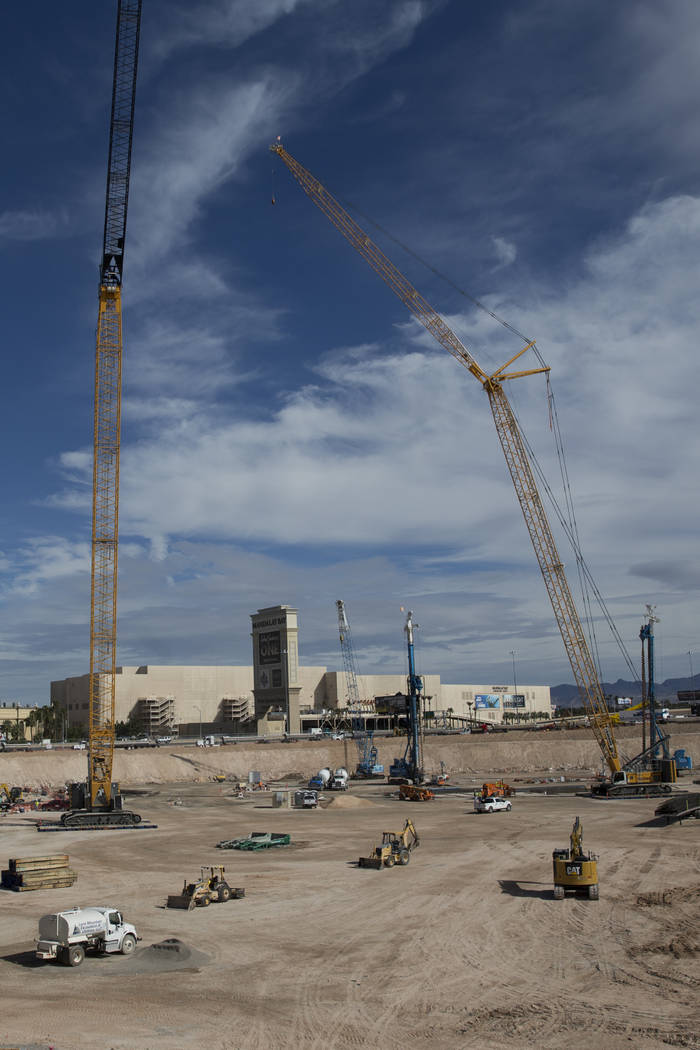Use of luxury suite on agenda for Las Vegas Stadium Authority
The Las Vegas Stadium Authority may vote Thursday on an agreement that would give authority members access to luxury box seats in the Las Vegas stadium.
An authority spokesman said use of the suite would be for “economic and community development purposes.” A similar agreement in Minnesota for U.S. Bank Stadium resulted in two officials with the Minnesota Sports Facilities Authority resigning after a state audit found most of the seats were being used by family and friends of authority members.
The new section of the lease agreement with the Oakland Raiders says that once the authority has contributed the public’s $750 million share of the stadium costs, it will be given free access to one suite designated by the Raiders, an unspecified number of tickets to all games, excluding the Super Bowl or any championship game in which the Raiders are involved, and “a number of complimentary parking passes.”
The section was unveiled Monday when the agenda for Thursday’s meeting was posted.
Jeremy Aguero, a principal for Las Vegas-based Applied Analysis, which serves as staff to the authority, said the Raiders offered the suite for marketing purposes, a common arrangement between a team and a board with stadium oversight.
Leveraging the stadium
“The language was added to the lease agreement because the Raiders and the authority agreed that having a suite that could be used for economic and community development purposes would be a positive way to leverage the stadium as a community asset,” Aguero said in an email explaining the new section of the lease agreement.
“The Raiders did not need to provide such a suite, but generously did,” he said. “The authority will ultimately need to set a policy for the use of the suite; however, it is not provided for nor intended to be a benefit or perk for authority board members themselves.”
That’s how a similar agreement between the Minnesota Vikings and the Minnesota Sports Facilities Authority was billed for two suites at U.S. Bank Stadium in Minneapolis where the NFL’s Super Bowl game was played last month.
Family and friends used suites
A 26-page audit report from the Minnesota Office of the Legislative Auditor released in February 2017 found that of the 352 tickets used by the authority for U.S. Bank Stadium’s Norseman Suite, 45 percent were used by family and friends, 29 percent by marketing guests and 16 percent by the authority and its staff. Auditors questioned the purpose of the remaining 10 percent of tickets used.
The audit determined that the authority’s commissioners and executive director didn’t break any laws when they gave free tickets to family members and friends, but they did “violate a core ethical principle.”
The audit also found that the authority failed to comply with state law by not maintaining a record of who received tickets to its stadium suites adding that state law does allow the authority to keep certain marketing information private after it is created.
About a week after the audit was made public, authority chairwoman Michele Kelm-Helgen and executive director Ted Mondale announced plans to resign from their positions. The St. Paul Pioneer Press reported that Kelm-Helgen apologized for the suite issue, but defended the authority, saying giving tickets to friends and family was standard practice for such stadiums.
The audit recommended that the Minnesota Legislature enact laws to control the authority’s use of complimentary tickets to events at U.S. Bank Stadium, to allow one or both of the authority’s suites to be used for nonprofit charitable purposes and to control the use of complimentary tickets at all sports and entertainment facilities built with public money.
‘A form of gratuity’
An attorney who has represented Major League Baseball teams in a variety of sports and recreational cases suggested that the Las Vegas Stadium Authority outline some of the policies involving the use of the stadium suite before approving the lease agreement.
“Because it is a controversial relocation — you know that all eyes are going to be on it — why not address it thoroughly and come up with parameters, guidelines and boundaries about how those boxes are to be used?” said Carla Varriale of the New York-based Havkins Rosenfeld Ritzert & Varriale law firm.
“You want to make sure there’s going to be a value there for the taxpayer,” Varriale said in a telephone interview. “If the authority or the state or local government is using it for true economic development purposes, including what the purposes are and how they’re going to be defined and who decides, is a benefit to the taxpayer as well. Where you get in trouble, as was the case in Minnesota, is when it becomes a form of gratuity for the friends of the politicians. It’s got to be a true economic development project.”
Contact Richard N. Velotta at rvelotta@reviewjournal.com or 702-477-3893. Follow @RickVelotta on Twitter.
Stadium excavation work on schedule
As the Las Vegas Stadium Authority meets Thursday and plans another special meeting March 28 to put the finishing touches on a series of agreements between the Raiders, the authority and Clark County, work is progressing at the site of the estimated $1.9 billion, 65,000-seat indoor stadium project at Interstate 15 and Russell Road.
Officials at the site on Tuesday said excavation work continues to be on schedule in the early phases of construction, which mostly includes blasting through massive layers of caliche to prepare the stadium's inner bowl 20 feet below ground level.
Former Raiders running back Napoleon McCallum, now a Southern Nevada resident and executive with Las Vegas Sands Corp., was Tuesday's honorary blaster, detonating the dynamite charge that loosened the rock that is extracted daily and carried away by trucks making hundreds of runs to several locations.
The Raiders aren't disclosing who is receiving the fill dirt and rock or terms of the contracts to take it. The revenue generated in those contracts helps offset construction costs.
The Review-Journal is owned by the family of Las Vegas Sands Corp. Chairman and CEO Sheldon Adelson.



